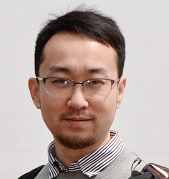Abstract
Conventional synchronous generators are gradually being re-placed by low-inertia inverter-based resources. Such transition introduces more complicated operation conditions, frequency deviation stability and rate-of-change-of-frequency (RoCoF) security are becoming great challenges. This paper presents an active linearized sparse neural network (ALSNN) based frequency-constrained unit commitment (ALSNN-FCUC) model to guarantee frequency stability following the worst generator outage case while ensuring operational efficiency. A generic data-driven predictor is first trained to predict maximal frequency deviation and the highest locational RoCoF simultaneously based on a high-fidelity simulation dataset, and then incorporated into ALSNN-FCUC model. Sparse computation is introduced to avoid dense matrix multiplications. An active data sampling method is proposed to maintain the bindingness of the frequency related constraints. Besides, an active ReLU linearization method is implemented to further improve the algorithm efficiency while retaining solution quality. The effectiveness of proposed ALSNN-FCUC model is demonstrated on the IEEE 24-bus system by conducting time domain simulations using PSS/E.
Index Terms
Deep learning, Frequency deviation, Frequency stability, Low-inertia power systems, Sparse neural network, ReLU linearization, Rate of change of frequency, Unit commitment.
Cite this paper:
Mingjian Tuo and Xingpeng Li, “Active Linearized Sparse Neural Network-based Frequency-Constrained Unit Commitment”, arXiv:2307.04880, Jul. 2023.

